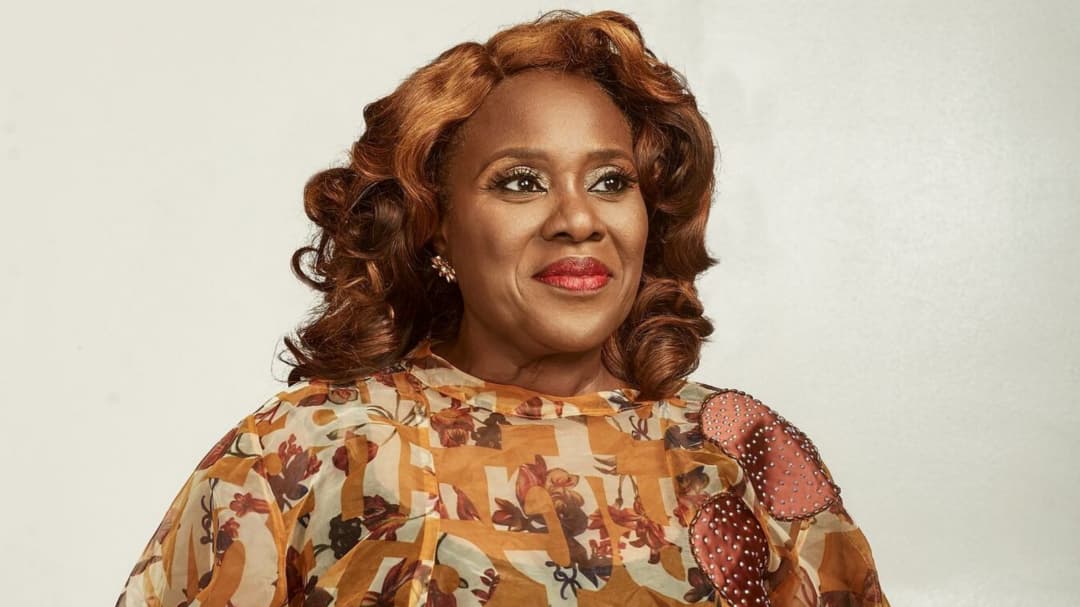The Conversations Nigerians Abroad Have When No One Is Listening

There is a kind of conversation Nigerians abroad only have when the room is quiet, when the accent can rest, when there is no pressure to explain or soften anything. It usually happens late at night, after a long shift, after a video call with family back home, or during those quiet moments when exhaustion loosens the tongue.
These are not the polished updates they share on social media or the short, cheerful replies they give relatives who assume life abroad is coated in ease. These conversations drift through fear, longing, guilt, pride, confusion, and the steady, stubborn hope that life will eventually level out. And they are honest in a way that only comes out when no one else is listening.
The Weight Behind the Smile
Every Nigerian abroad learns early how to maintain a particular type of composure, a practiced calm that hides the complicated truth of the life they are building. They smile through workdays that stretch into nights.
They promise their families they are fine, even when they are overwhelmed, lonely, or unsure of tomorrow’s plans. Many never say that the bills don’t care that they are far from home, or that the pressure to succeed sometimes becomes a quiet ache at the back of the mind.
But in private, among people who understand, the truth unfolds more easily. They talk about the difficulty of adapting, of learning new systems, of navigating places where their own voice sometimes feels too loud or out of place. They admit that the journey is not as shiny as it looks online. There is dignity in this candor. It is the first layer of the story rarely told.
One of the heaviest but least discussed feelings among Nigerians abroad is guilt, guilt for leaving, guilt for staying, guilt for chasing opportunity elsewhere while people they love remain at home. Even when the decision to leave was necessary, sometimes urgent, there is a lingering sense of having abandoned duties, traditions, or expectations.
In conversations behind closed doors, people talk about the birthdays missed, the weddings watched through blurry livestreams, the relatives who fell ill while they were oceans away. They talk about younger siblings who grew up without them, parents who grow older faster than distance allows them to notice, and the unspoken pressure to support everyone even when their own foundation is still shaky.
This emotional balancing act is rarely spoken out loud in public. It surfaces only when the room feels safe, when the heart is too full to pretend.
The Reality Behind the Hustle
Many Nigerians abroad work jobs they never imagined doing. Degrees earned with pride back home sometimes go unused while they take roles meant to pay rent, build credit, or gain a foothold in a competitive system. In the quiet hours, they talk about the transition, the unexpected climb, the humility required, the moments of doubt that come with starting from scratch in a new country.
They talk about working double shifts, about dreaming in two time zones, about saving money that never seems to stretch far enough because of obligations both abroad and at home. They speak about how different it feels to work in systems where efficiency is expected at all times, and mistakes are documented, not forgiven casually.
These conversations are not complaints, they are confessions. They reveal the truth behind the success stories posted online, the version of life filtered out for public consumption.
Diaspora Connect
Stay Connected to Home
From Lagos to London, Accra to Atlanta - We Cover It All.

The Search for Belonging; Belonging is complicated for Nigerians abroad. They move through countries where they are welcomed and questioned in the same breath. Accents are sometimes treated like curiosities. Names are mispronounced so often that some begin to shorten them out of convenience, even though the shortening feels like erasing a piece of themselves.
Among friends, they talk about walking into rooms and feeling both visible and invisible. They talk about microaggressions they brushed aside in the moment but couldn’t forget later. They talk about trying to fit in without losing the parts of themselves that feel anchored to home.
Belonging, for them, is not a destination, it is a continuum. It shifts. It falters. It grows.
The Ache for Home: No matter how long they’ve been gone, Nigerians abroad speak of home with a particular tenderness. Not the postcard version, Nigeria in December, the weddings, the parties, the shared laughter. They talk about everyday sounds, familiar street greetings, unstructured conversations, food that tastes different because of the soil it grew from. The yearning is quiet but persistent.
In private, they admit that this longing doesn’t fade. It doesn’t matter how much they achieve or how settled they become. There is always a thread connecting them back home, tied to memories of simplicity, chaos, humor, and culture. And sometimes, homesickness appears at unexpected moments, while cooking, while listening to music, or while watching a sunset that feels too still.
The Pressure to Succeed—Publicly

Success abroad is not simply a personal goal; it often feels like a communal obligation. Nigerians abroad carry the weight of multiple expectations from family, from friends, from society, from their own past selves. There is pressure to justify the decision to leave. Pressure to send money home. Pressure to meet timelines others set for them. Pressure to show progress, even during seasons of delay.
This pressure creates another kind of silence. Many don’t talk about the deadlines, the rejections, the slow advancements, the sacrifices, or the emotional toll. They don’t mention the moments they question whether they made the right choice. But when the environment feels safe, these feelings spill out, raw and unfiltered.
Another truth people don’t admit easily: leaving home changes you, sometimes in ways you can’t reverse. The shift is subtle at first, opinions evolve, habits adjust, routines change. But with time, some Nigerians abroad fear that returning home might feel unfamiliar. That they may not blend in as easily. That people might see them differently, or expect too much, or misunderstand the ways they’ve grown.
This fear is rarely expressed openly. But in quiet conversations, it emerges the concern that home might not feel exactly like home anymore, even though the love remains.
Because so much is unspoken publicly, Nigerians abroad build small circles where honesty is allowed. These are the spaces where they talk about their struggles with resilience, their confusions, their frustrations, their breakthroughs. They share advice, exchange opportunities, and help each other adapt.
These communities, sometimes online, sometimes in person become a lifeline. They become reminders that even in distance, no one is truly alone. In these circles, people can remove the armor they wear daily and speak freely, without fear of judgment or misunderstanding.
The Global Nigerian Identity
Diaspora Connect
Stay Connected to Home
From Lagos to London, Accra to Atlanta - We Cover It All.
Across the world, Nigerians abroad continue to redefine what it means to leave home without losing it. They help each other navigate unfamiliar systems. They share job resources. They send remittances that uplift families. They celebrate culture loudly through food, language, art, fashion, and community events.
Organizations like the Nigerian Diaspora Commission regularly highlight the contributions Nigerians make globally, while international bodies like IOM examine migration trends that shape diasporic experiences. These resources don’t capture the emotional texture of living abroad, but they underline a truth many feel: Nigerians remain connected no matter the distance.
And in the middle of all this, Nigerians abroad continue to hold onto their identity with a mix of pride and humility.
In the end, the conversations Nigerians abroad have when no one is listening reveal a story of courage, conflict, sacrifice, and an ongoing search for balance. These private talks are not complaints, they are reflections. They show the human side of migration, far from the narratives shaped by assumptions, pressures, or stereotypes.
Being abroad is not a single story. It is a layered experience: hopeful, difficult, rewarding, confusing, painful, empowering, and deeply transformative.
And maybe that is why these conversations stay behind closed doors, because they carry the weight of all the things people feel but rarely say.
You may also like...
Premier League Scandal: La Liga Chief Slams 'Damaging' Handling of Man City's 115 Charges

Over three years after being charged with numerous financial rule breaches, Manchester City awaits a verdict from a proc...
Avengers: Doomsday Shocks Fans With Devastating Theatrical Move Months Ahead of Release!

Marvel Studios aims for a comeback with two major releases, "Spider-Man: Brand New Day" and "Avengers: Doomsday." The la...
Daredevil Showrunner's Epic 3-Part Saga Storms Charts Again After Spin-Off Triumph!

The original "Spartacus" series is experiencing a significant resurgence on digital streaming charts, fueled by the laun...
Unveiled: 'Shrinking' Star Spills on Harrison Ford's Pivotal Season 3 Moment

Lukita Maxwell discusses Alice's journey in Shrinking Season 3, highlighting her character's growth, evolving relationsh...
Peyton List's Heartbreaking Warning: 'School Spirits' Season Finale Changes Everything for Maddie and Mom

In School Spirits Season 3, Episode 7, Maddie Nears faces a crushing realization with Wally's departure, leading to a pi...
Visa-Free Africa: Development Bank and African Union Champion Open Borders for Economic Boom

African leaders and institutions have renewed calls for visa-free travel across the continent, highlighting its essentia...
U.S. Halts Crucial Lifesaving Aid to Seven African Nations Amidst Regional Concerns

The Trump administration is cutting humanitarian aid to seven African nations, citing a lack of connection between aid a...
Major Health Risk: FDA Recalls Cottage Cheese Across 24 States
:max_bytes(150000):strip_icc()/Health-cottage-cheese-recall-1638be9c6f7f44029a41fa5139f90139.png)
Great Value cottage cheese sold at Walmart stores in 24 states has been recalled due to potential under-pasteurization o...






